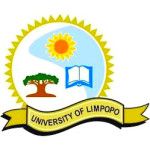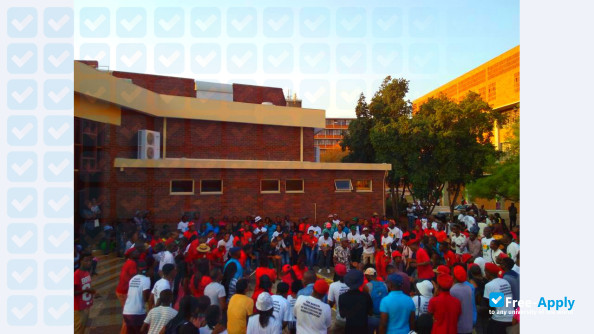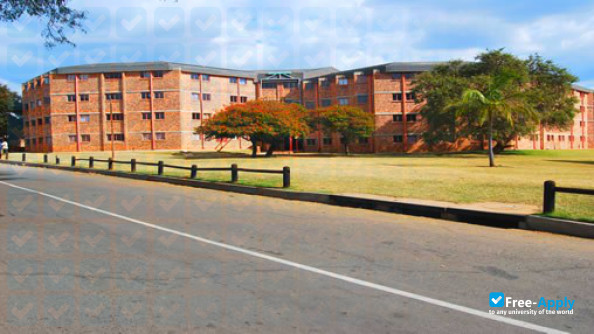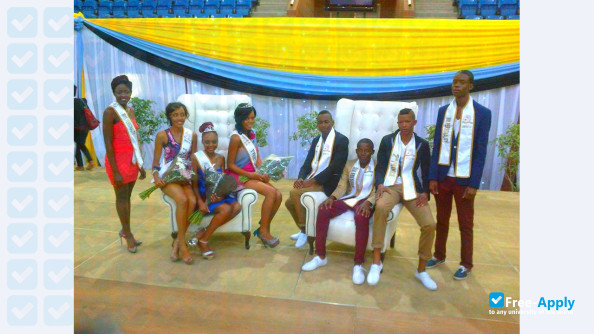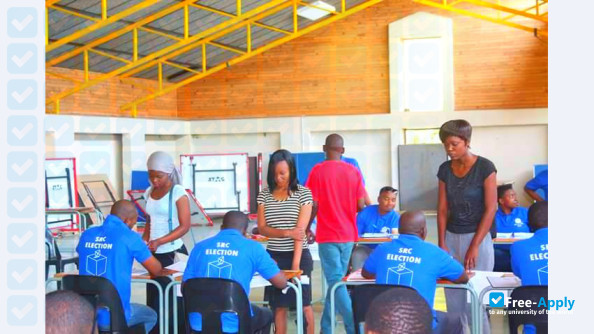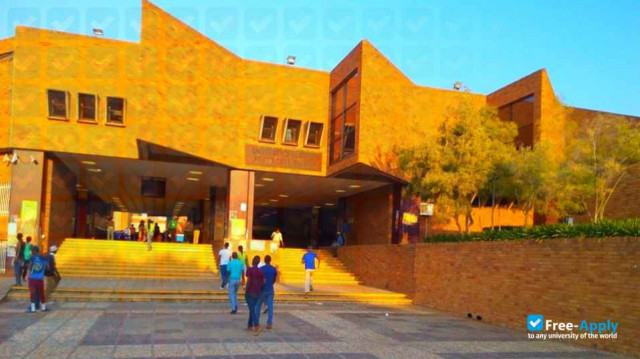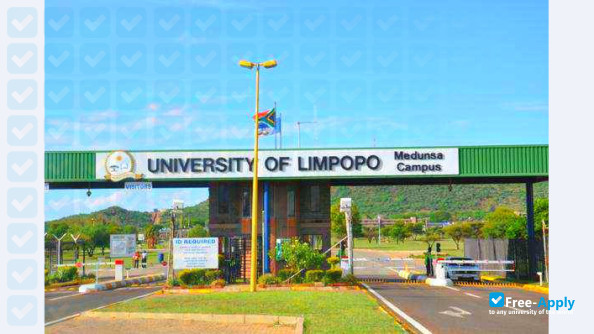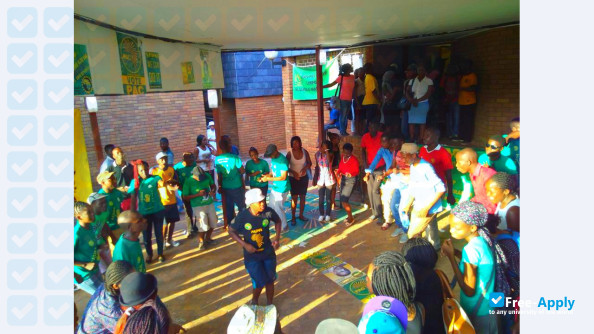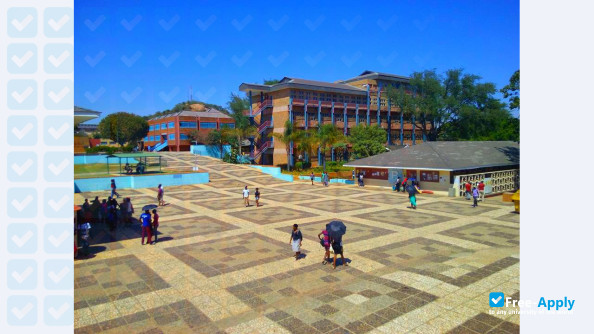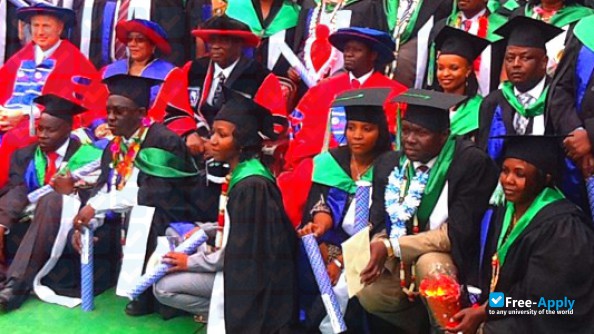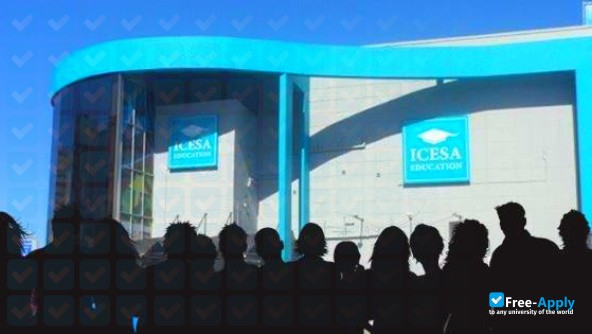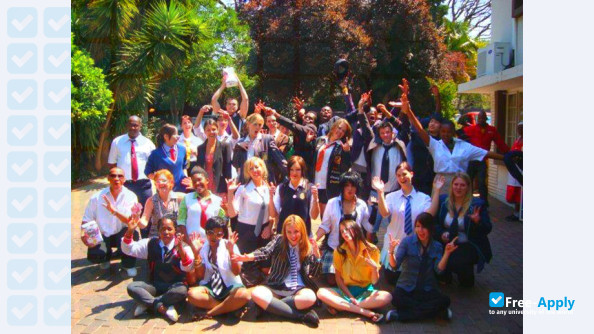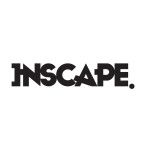About the university
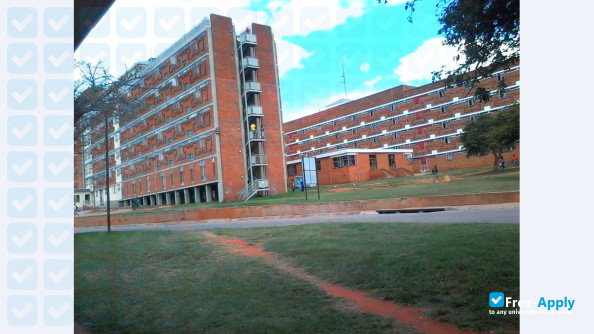
The University of the North was established in 1959 under the apartheid regime's policy of separate ethnically-based institutions of higher learning policy. The university was sited at Turfloop farm about 40 kilometres (25 mi) east of Pietersburg. The town that grew around the university was named Sovenga, for the three ethnic groups (Sotho, Venda, Tsonga) that Apartheid ideology intended to study there. In reality, most inhabitants refer to the town as Mankweng, after one of the chiefs of the area. Under later apartheid, the University of the North served as a "model" university where dignitaries were brought to show the "viability" of the separate facilities. As such, it received heavy government subsidies, but the real problem was that the students that the university supposedly served were so under-resourced in their standard education that the quality of instruction was placed under incredible demands. The university was a centre of resistance to apartheid in the 1960s, 70s, and 80s with the SADF occupying the grounds often during those years. After the end of apartheid, the university struggled through various re-organization and rationalization schemes, yet always managed to survive. Enrollment fluctuated wildly in the years after liberation and while some faculty did not transition very easily, others were able to seize upon the new opportunities. The University of Limpopo is the result of a merger between the former Medical University of Southern Africa and the University of the North, which occurred on 1 January 2005. The extension of University Education Act of 1959 made provision for the establishment of racially exclusive universities for black South Africans. Under the provisions of the Act, the University College of the North was established about thirty kilometres from the Limpopo Province town of Polokwane on 1 August 1959. The College was placed under the academic trusteeship of the University of South Africa. This formative relationship was maintained until the South African Parliament promulgated the University of the North Act (Act No. 47 of 1969) thus bringing to an end the College status as of 1 January 1970. The University is in the foothills of the Hwiti (Wolkberg range) in Mankweng township, midway between Polokwane and Magoebaskloof.
Education programs
Accounting
Accounting
Bachelor of Accounting
Zulu
Language of instructions
Full-time
Study mode
$260
Fee for international students
$260
Fee for domestic students
Administration
~ $260 / year
Administration
Bachelor of Administration
Zulu
Language of instructions
Full-time
Study mode
$260
Fee for international students
$260
Fee for domestic students
Agriculture
~ $260 / year
Agriculture
Bachelor of Agriculture
Zulu
Language of instructions
Full-time
Study mode
$260
Fee for international students
$260
Fee for domestic students
Applied Sciences and Professions
~ $260 / year
Applied Sciences and Professions
Bachelor of Applied Sciences & Professions
Zulu
Language of instructions
Full-time
Study mode
$260
Fee for international students
$260
Fee for domestic students
Biology
~ $260 / year
Biology
Bachelor of Biological
Zulu
Language of instructions
Full-time
Study mode
$260
Fee for international students
$260
Fee for domestic students
Business
~ $260 / year
Business
Bachelor of Business
Zulu
Language of instructions
Full-time
Study mode
$260
Fee for international students
$260
Fee for domestic students
Chemistry
~ $260 / year
Chemistry
Bachelor of Chemistry
Zulu
Language of instructions
Full-time
Study mode
$260
Fee for international students
$260
Fee for domestic students
Computer Science
~ $260 / year
Computer Science
Bachelor of Computer Science
Zulu
Language of instructions
Full-time
Study mode
$260
Fee for international students
$260
Fee for domestic students
Culturology
~ $260 / year
Culturology
Bachelor of Culturology
Zulu
Language of instructions
Full-time
Study mode
$260
Fee for international students
$260
Fee for domestic students
Earth Sciences
~ $260 / year
Earth Sciences
Bachelor of Earth Sciences
Zulu
Language of instructions
Full-time
Study mode
$260
Fee for international students
$260
Fee for domestic students
Economics
~ $260 / year
Economics
Bachelor of Economics
Zulu
Language of instructions
Full-time
Study mode
$260
Fee for international students
$260
Fee for domestic students
Education and Teaching
~ $260 / year
Education and Teaching
Bachelor of Education
Zulu
Language of instructions
Full-time
Study mode
$260
Fee for international students
$260
Fee for domestic students
Environmental Studies
~ $260 / year
Environmental Studies
Bachelor of Environmental Studies
Zulu
Language of instructions
Full-time
Study mode
$260
Fee for international students
$260
Fee for domestic students
Food and Nutrition
~ $260 / year
Food and Nutrition
Bachelor of Food and Nutrition
Zulu
Language of instructions
Full-time
Study mode
$260
Fee for international students
$260
Fee for domestic students
Health
~ $260 / year
Health
Bachelor of Health
Zulu
Language of instructions
Full-time
Study mode
$260
Fee for international students
$260
Fee for domestic students
History
~ $260 / year
History
Bachelor of History
Zulu
Language of instructions
Full-time
Study mode
$260
Fee for international students
$260
Fee for domestic students
Law and Jurisprudence
~ $260 / year
Law and Jurisprudence
Bachelor of Law & Jurisprudence
Zulu
Language of instructions
Full-time
Study mode
$260
Fee for international students
$260
Fee for domestic students
Management
~ $260 / year
Management
Bachelor of Management
Zulu
Language of instructions
Full-time
Study mode
$260
Fee for international students
$260
Fee for domestic students
Mathematics
~ $260 / year
Mathematics
Bachelor of Mathematics
Zulu
Language of instructions
Full-time
Study mode
$260
Fee for international students
$260
Fee for domestic students
Media Communications
~ $260 / year
Media Communications
Bachelor of Media
Zulu
Language of instructions
Full-time
Study mode
$260
Fee for international students
$260
Fee for domestic students
Medicine
~ $260 / year
Medicine
Bachelor of Medicine
Zulu
Language of instructions
Full-time
Study mode
$260
Fee for international students
$260
Fee for domestic students
Natural Sciences
~ $260 / year
Natural Sciences
Bachelor of Natural Sciences
Zulu
Language of instructions
Full-time
Study mode
$260
Fee for international students
$260
Fee for domestic students
Nursing
~ $260 / year
Nursing
Bachelor of Nursing
Zulu
Language of instructions
Full-time
Study mode
$260
Fee for international students
$260
Fee for domestic students
PR
~ $260 / year
PR
Bachelor of Communication
Zulu
Language of instructions
Full-time
Study mode
$260
Fee for international students
$260
Fee for domestic students
Pharmacy
~ $260 / year
Pharmacy
Bachelor of Pharmacy
Zulu
Language of instructions
Full-time
Study mode
$260
Fee for international students
$260
Fee for domestic students
Philology
~ $260 / year
Philology
Bachelor of Philology
Zulu
Language of instructions
Full-time
Study mode
$260
Fee for international students
$260
Fee for domestic students
Philosophy
~ $260 / year
Philosophy
Bachelor of Philosophy
Zulu
Language of instructions
Full-time
Study mode
$260
Fee for international students
$260
Fee for domestic students
Physics
~ $260 / year
Physics
Bachelor of Physics
Zulu
Language of instructions
Full-time
Study mode
$260
Fee for international students
$260
Fee for domestic students
Political Science
~ $260 / year
Political Science
Bachelor of Political Science
Zulu
Language of instructions
Full-time
Study mode
$260
Fee for international students
$260
Fee for domestic students
Psychology
~ $260 / year
Psychology
Bachelor of Psychology
Zulu
Language of instructions
Full-time
Study mode
$260
Fee for international students
$260
Fee for domestic students
Sociology
~ $260 / year
Sociology
Bachelor of Sociology
Zulu
Language of instructions
Full-time
Study mode
$260
Fee for international students
$260
Fee for domestic students
How to apply to the university
Choose a program
Press “Apply now” button
Send an application form
Complete admissions tasks
Go to study
To apply to University of Limpopo follow these steps. To get more information about the university and the admissions process, you can use the live chat to contact a university representative.
Required documents for admission
When applying for admission to University of Limpopo in South Africa you should prepare all required documents. Request a list of necessary documents directly from a university, as it may vary for different countries. Using our live chat, you can also ask for sample documents.
- Proof of fee payment
- Research proposal outline (MA, PhD)
- Diploma evalution (local authorities)
- Experience certificate (MA, PhD)
- Application fee
- Resume/CV (graduate, postgraduate)
- Photographs
- Passport
- Declaration for financial support
- IELTS Certificate
- Letters of reccomendation (MA, PhD)
- Health and Life Insurance
- Family Details
- TOEFL Certificate
- Student visa
- Online Application form
- Supervisor Agreement Form (PhD)
Why people choose this university
Contacts
University of Limpopo
Turfloop campus Private Bag X1106, Sovenga, 0727, Polokwane, Limpopo
Polokwane
South Africa
Free Apply is not responsible for the content of this page. Through the Site, Free Apply provides an online catalog which you can use to find different types of educational institutions. It’s possible for a new university to be registered by any user, however only verified university representatives will be able to manage, reply in chat and make changes to a university page. Once the University registers its official representative, it has the right to block access for others to edit the information. Further control over the content will be carried out by the representative of the University. Registration with the Free-Apply.com catalog is free.
